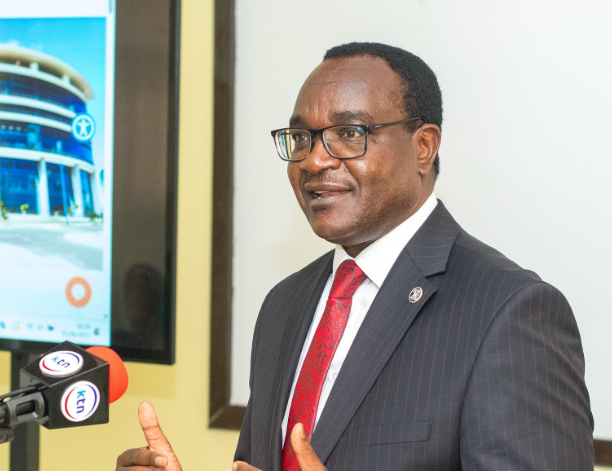
 Education CS Julius Ogamba during the Open University of Kenya’s Council and Management retreat in Naivasha on June 5, 2025/JULIUS OGAMBA/X
Education CS Julius Ogamba during the Open University of Kenya’s Council and Management retreat in Naivasha on June 5, 2025/JULIUS OGAMBA/XFor many Kenyans who have long been locked out of higher education by high costs, a new door is opening.
The government’s Open University programme is expected to reduce the cost of university education by more than 30 per cent once fully implemented, Education Cabinet Secretary Julius Ogamba has said.
Speaking during the Open University of Kenya’s Council and Management retreat in Naivasha on Thursday, Ogamba pointed to the digital and flexible structure of the institution as the reason behind the anticipated drop in costs.
“The cost of education in the Open University is lower because of the mode of instruction and the flexibility of the programmes they have,” he said, noting how the model cuts down on the overheads that burden traditional universities.
For thousands of prospective students, this shift could make all the difference—allowing them to study without the weight of prohibitive expenses.
The ministry has set its sights on enrolling over 50,000 students in the Open University by the end of 2026.
Ogamba said this target is not just about access but also about ensuring the university’s financial sustainability in the long run.
“As you are aware, we have challenges in the funding of universities. The more students we have, the more programmes we have in the Open University, and that will assist it to easily wean off the exchequer once we hit that optimum number,” he explained.
The Cabinet Secretary also revealed that the Ministry is advancing plans to allow learners to earn qualifications gradually through modularisation and micro-credentialing.
He said this system reflects the demands of today’s job market and opens doors for working adults and other non-traditional learners.
Ogamba commended the Council and university leadership for their work in building a progressive institution that widens access to education through open and distance learning.
He urged them to prioritise launching market-driven programmes, improving digital infrastructure, and establishing strategic partnerships.
Beyond university education, the government is also pushing to expand the Technical and Vocational Education and Training (TVET) sector.
Ogamba said enrolment stood at 375,000 by December 2024 and had risen to 700,000 by May 2025. The target is to reach two million learners by the end of the year.
“We are working with the National Government Administration Officers (NGAO) to ensure that we market our programmes in the various Barazas and the various homes so that people can come and join the TVET institutions to learn the hands-on skills that are required in the market,” he said.
For many, these efforts represent more than statistics—they offer a real chance to build a better future through education.













